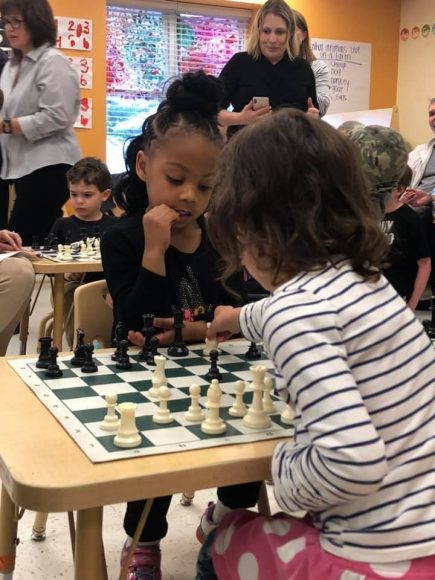The “kindergarten bubble” is another byproduct of the pandemic that will influence decisions parents of preschool students will make in the coming months. School closures and remote learning— or any long absence from the classroom— caused some parents to delay the start of kindergarten for their 5-year-olds last fall.
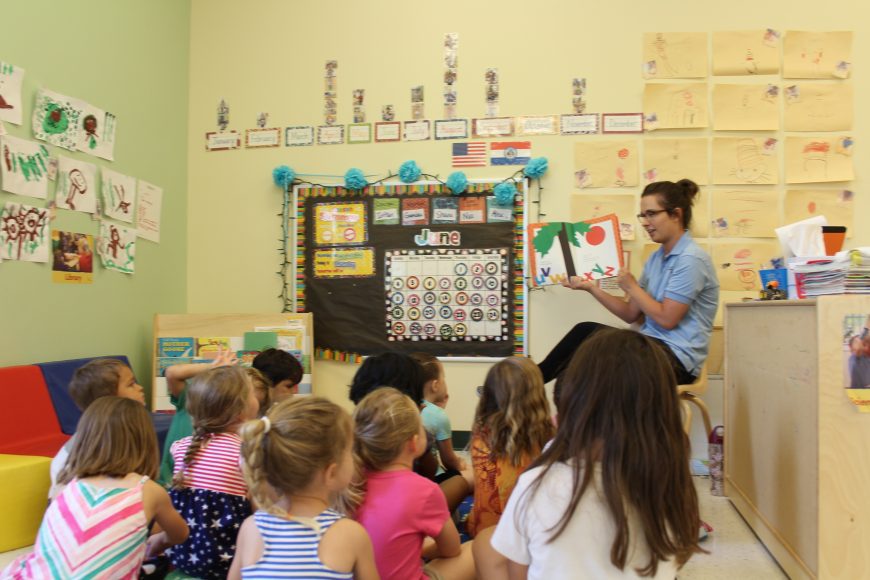
Inside the bubble, children between 4- and 6-years-old will be vastly different from each other when it comes to kindergarten preparedness. They will likely have a wider range of skills— either way more prepared or not quite as prepared— because of their varied social and academic experiences during the pandemic. It will require extra care from classroom teachers and from parents. Experts predict larger-than-usual numbers of children entering kindergarten this coming school year, with greater disparities in ages and skill levels than a typical incoming class.
Even with this bubble looming, there are things to keep your mind worry-free. If your child attended a preschool program with a standards-based curriculum, they should be in great shape.
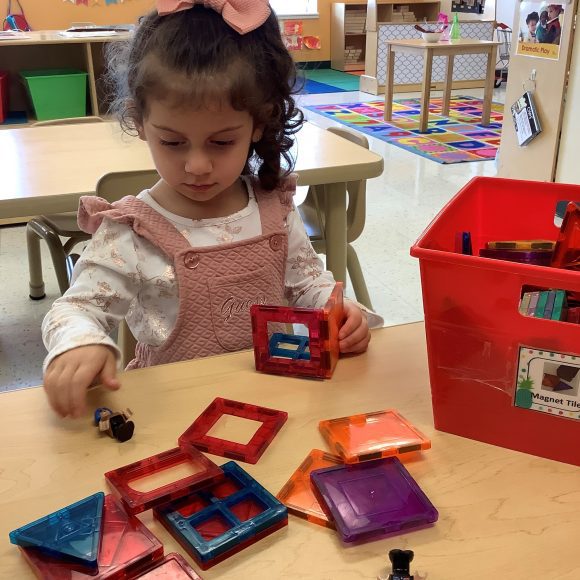
Preschool programs like Kiddie Academy are designed to introduce and facilitate activities that develop the skills needed for kindergarten. For example, the curriculum focuses on core skills that include writing, math, literacy, building independence, developing fine motor skills, growing social skills, learning to follow directions, and character values.
Year-round programs are especially beneficial to early learners because they establish routines and habits that carry into the Kindergarten classroom. This is a great way to narrow some of those learning gaps and get kids back on track with the socialization they may have missed out on during the pandemic.
The principles of kindergarten readiness remain consistent, even with the extraordinary pandemic circumstances we’ve lived through. As you prepare your preschooler (and yourself!) to approach the big milestone, keep these important things in perspective.
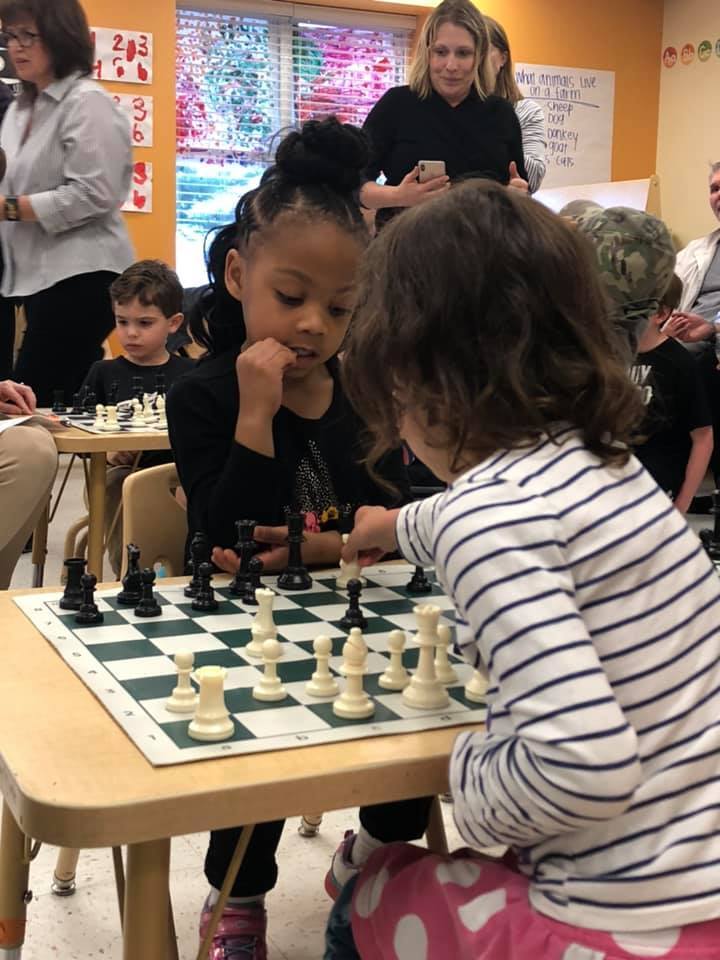
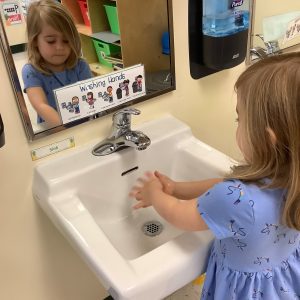
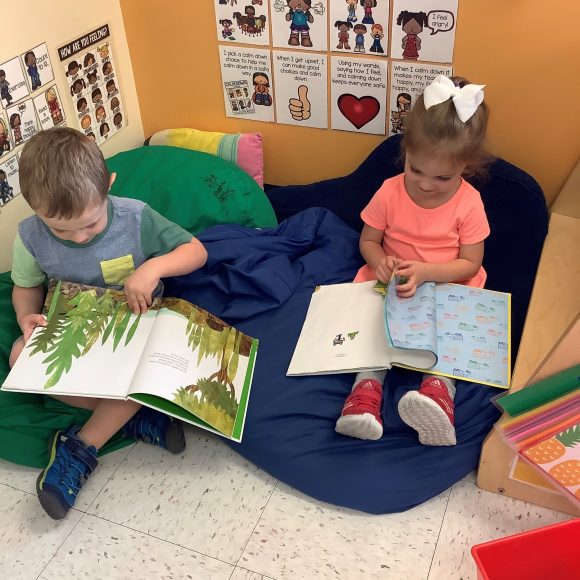
- It is normal for children to enter this first formal learning experience at varying developmental stages. In fact, according to the United States Department of Education, students will enter kindergarten with a range of different academic skills and learning behaviors. This is due to the fact that young children experience various types of early care and education environments the year before they enter kindergarten and will be coming from a variety of different early childhood experiences.
- There isn’t one determining factor on whether your child is ready for kindergarten. Every child will reach his or her developmental milestones at a different pace. Some children will master many skills during their kindergarten year. By the time children enter kindergarten and after, they will be well on their way to developing the physical, mental and emotional attributes that will help them throughout an academic career.
- Independence skills are pure gold in kindergarten. Your little learner will soar if you practice the important independence skills that she will use starting on her first day. Children will be ahead of the game if they can put on, zip or button their own coat. In Kiddie Academy classrooms, we practice following multi-step directions such as putting away the crayons and then selecting a book. Lining up with friends and washing hands are critical skills to help them be a cohesive part of the classroom. If you’re feeling extra motivated, practice putting away her belongings from her desk after use and turning work in to the teacher. These things build confidence, and that is a reward unto itself.
- It’s not necessary that children be able to read before entering kindergarten. However, phonemic awareness does help develop strong early literacy. That’s why we teach children foundational skills like recognizing letters and sounds and reading sight words.
- Social skills are equally important as academic skills. Working on managing emotions, feeling and showing empathy, making good decisions, and following multi-step directions will help your child’s transition into kindergarten. Don’t be concerned if your child doesn’t have them all perfected, but practice them at home, and ask your preschool about examples of how they teach these skills.
- There are key readiness skills that will make the beginning of kindergarten easier for your child and help your kindergartener transition to school. Writing their own name with proper capitalization, recognition of alphabet letters and sounds, holding a pencil correctly to write, using complete sentences, and showing an interest in books and stories.
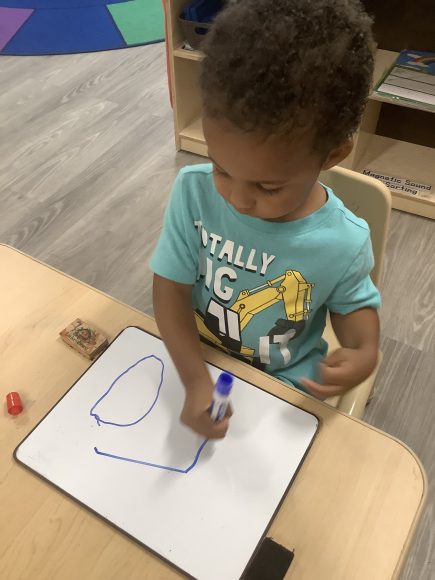
Kindergarten is an enormous milestone for your child and for the entire family. Talk openly about your child’s feelings toward kindergarten. Some children are ready to jump in feet first, and others may be more nervous or anxious. That’s okay. Validate their feelings, let them ask questions, and stay positive. Enjoy this journey because it will go by faster than you think.
About Kiddie Academy
Kiddie Academy in St. Louis began in 2014 and has three schools located in Chesterfield, Des Peres, and O’Fallon. The schools serve families with infants starting at 6 weeks old, toddlers, preschool, and pre-k.
The company offers Workplace EssentialsSM, an employer-sponsored child care benefits program. Every Workplace Essentials partnership is designed to meet the organization’s needs and identify the solutions that will work hard for employees. Already a success with St. Louis companies, you can find out more about Kiddie Academy Workplace Essentials by visiting: www.childcareforbusiness.com.
